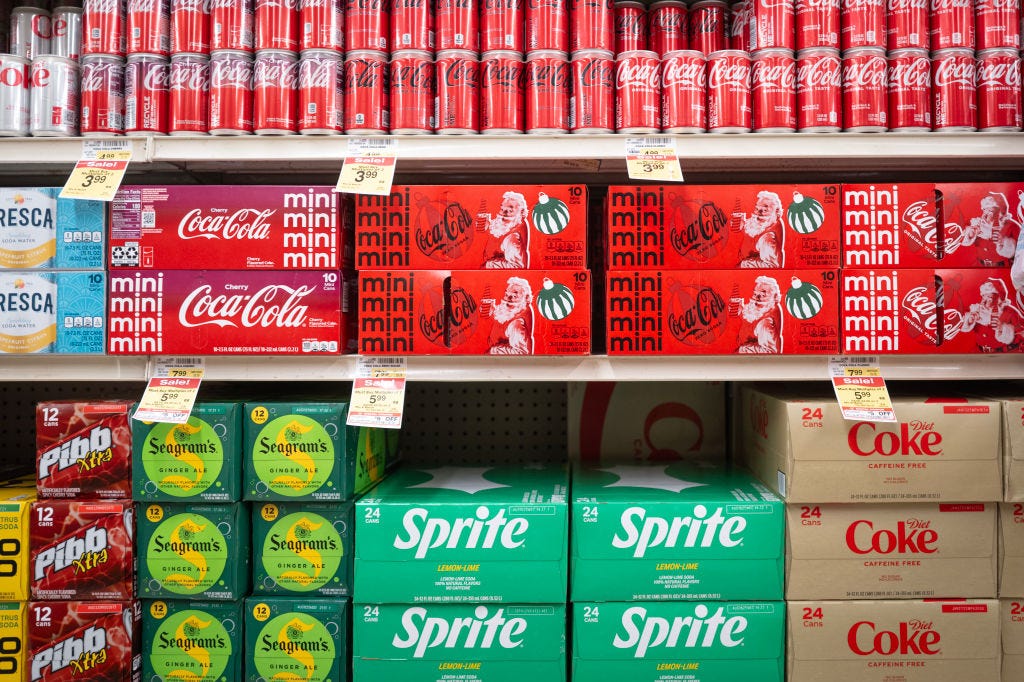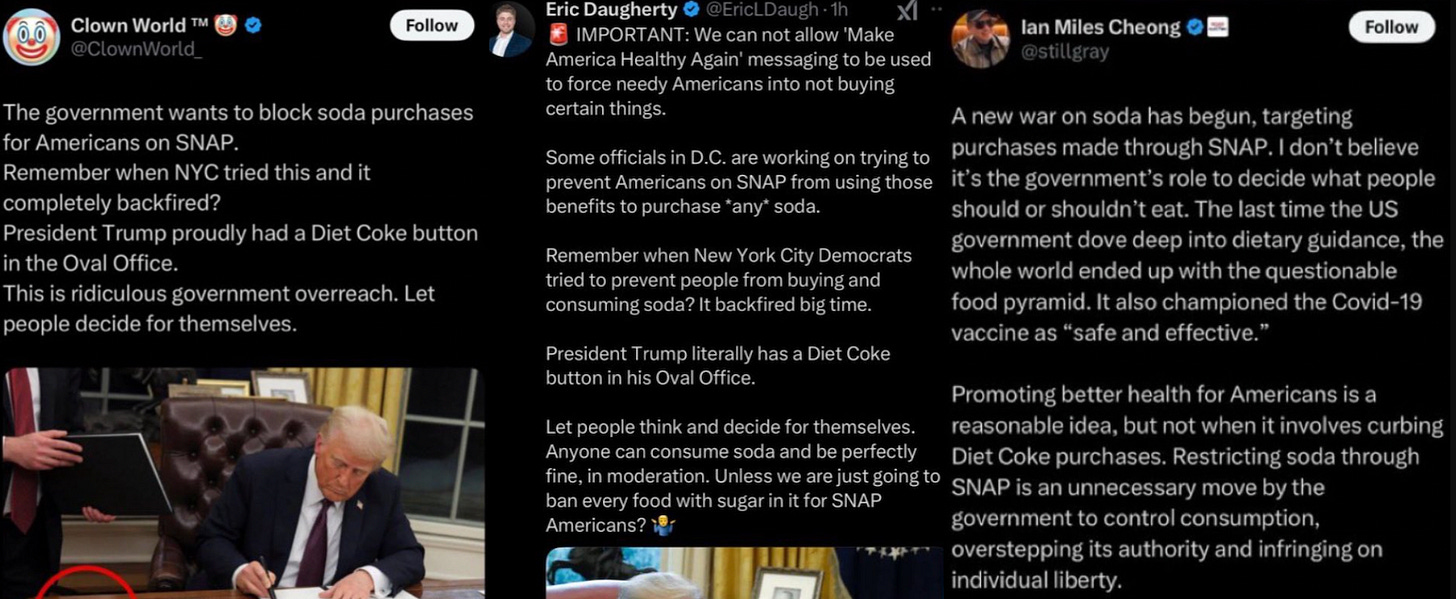Sugary Soda Industry's Covert Influencer Campaign Falls Apart
The soda industry attempted to buy off popular conservative social media influencers with coordinated messages against SNAP reforms.
Conservative social media influencers have been caught posting coordinated messages opposing proposed nutritional guidelines for SNAP benefits—the government assistance program formerly known as food stamps—after receiving payments from public relations firms.
The campaign emerged as Health and Human Services Secretary Robert F. Kennedy Jr. explores limitations on using SNAP benefits for sugary beverages. During fiscal year 2021, the program disbursed over $121 billion in benefits, with a significant portion spent on ultra-sugary drinks that provide minimal nutritional value.
Kennedy previously argued in an opinion column that it is "nonsensical for U.S. taxpayers to spend tens of billions of dollars subsidizing junk that harms the health of low-income Americans."
In response, several high-profile accounts began posting nearly identical messages criticizing the proposed reforms. Ian Miles Cheong, who has over 1.2 million followers, claimed "a new war on soda has begun." Eric Daugherty warned followers that officials were "trying to prevent Americans on SNAP from using those benefits to purchase any soda."
Independent reporter Nick Sortor revealed that these posts were orchestrated by Influenceable, a public relations firm offering influencers up to $1,000 per post to oppose SNAP reforms. Sortor published text messages documenting these solicitations.
Daugherty later confirmed the allegations, admitting on Sunday: "Yeah, that was dumb of me. Massive egg on my face. In all seriousness, it won't happen again."
This incident highlights a longstanding pattern in the beverage industry's approach to policy debates over sugary drinks. For more than two decades, soda companies have quietly funded scientists, advocacy groups, journalists and community organizations to counter proposals limiting sugary beverage consumption.
When San Francisco proposed a tax on sweetened beverages in 2012, ABC News reported that the industry paid protesters up to $13 per hour to attend anti-tax rallies. These demonstrations were designed to appear grassroots, with participants claiming the tax would disproportionately harm minority communities.
Similar tactics emerged in New York when then-Mayor Michael Bloomberg proposed size restrictions on sugary drinks. The NAACP and Hispanic Federation opposed the regulation without disclosing financial connections to Coca-Cola. In their court filing against the Bloomberg rule, the NAACP argued the regulation "arbitrarily discriminates against citizens and small-business owners in African-American and Hispanic communities."
The industry has also influenced the debate by funding groups that might otherwise support restrictions. Save the Children, which previously endorsed taxes on sweetened beverages to fight childhood obesity, abandoned this position while pursuing significant grants from major soda producers, including a $5 million contribution from the PepsiCo Foundation.




